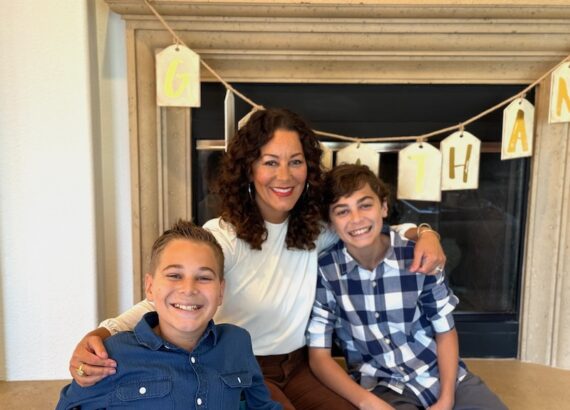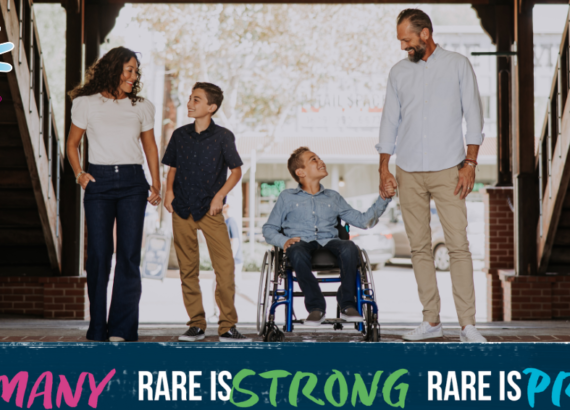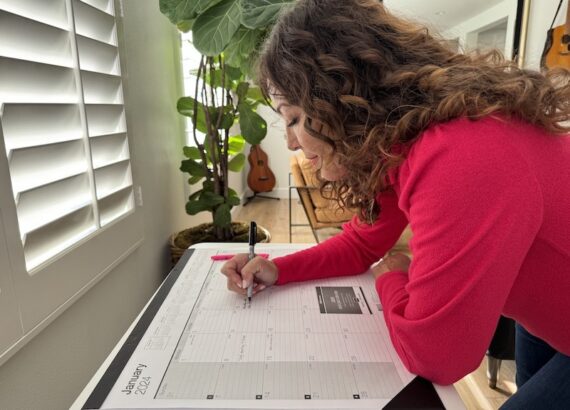ORGANIZING YOUR DEN

For every minute spent organizing an hour is earned.
Benjamin Franklin
Okay mamas, so why am I writing a post about organizing for rare-disease moms who have no time? Because I know it will help you. I promised to offer practical tips for everyday life that would help you in rare-disease parenting and this is truly one of them. Because there is so much information being thrown at you on a daily basis and there is so much paperwork that comes with every appointment, you need a system for organization. Without one, this can add to the feelings of overwhelm that many of us experience. Establishing an organizational system may take a little time upfront, but trust me, it’s going to help you in the long run. Organization is your friend.
My friends who know me will laugh when they read this because I love to organize. I love to make lists. I love to make binders. Give me a binder and a three-hole punch and I’m in heaven. The truth is, it also comes out of a huge need for me. I have a terrible memory. When I read something, I can absorb it, but when it’s delivered orally, I have a hard time with retention. Often, when you’re sitting in doctors’ offices, they’re shooting out so much information and it’s all in a language you don’t understand or haven’t heard before, so it all sounds foreign. You’re going to need to write it down so you can look it up later.
Here’s another thing: the information you’re receiving may be troubling. So instead of just listening and absorbing it, your body is having an emotional reaction as you’re receiving it. When that happens, your mind starts to wander to unwanted places and you don’t hear much of what’s being said. You’re going to need to capture all this important information, and you’re going to need to rely on something other than your memory.
Also, during this time your brain is going to be on overload. You’re going to have so much information coming at you. So many doctors, therapists, and specialists will be talking to you that it’ll be almost impossible for your brain to hold and retain all those conversations and all that information.
One day after my son’s diagnosis when I started getting busy “doing the do,” as one amazing rare mama I know calls it, I had so much on my brain that I almost forgot to pick up Mason from school. I literally almost forgot (swear you’ll never tell him this!). That’s when I realized I was on overload. Literally. So much was floating around in my head that I almost forgot something so routine, obvious, and automatic in my day. That’s when I said to myself, “Girrrrrl, you need to get it together!” I needed to pull it together before the whole dang thing came unraveled. So out came the binders and the lists and the notebooks.
But let’s be honest, not everyone shares my love for organization. Here’s the good news: Even if you’re a complete disorganized mess (gasp!), there’s still hope for you. It’s really not that hard, and it makes a world of difference. Listen sister, eight hundred little yellow sticky notes all over your house aren’t going to cut it here. So here’s a very basic system of what you can do.
Get a Notebook
Get a notebook and bring it with you to all your appointments. Jot down everything that is said. Remember, your memory can play tricks on you when you’re being told information that makes you have an emotional reaction. Don’t rely on your memory. Do yourself a favor and write it down. Write down any phone conversations as well. This will be the place that holds all the conversations so you can then refer back to it, and it’s all in one place.
Make a Binder
Paperwork piles, people! You will have paperwork piles for days. Every specialist and every doctor you see will give you copies of consents, discharge papers, visit notes, etc. Before you become buried under mounds of paper (just the thought of it makes me quiver), get yourself a three-hole punch and some binders. Make one large binder to hold everything if it’s helpful to have it all on one place or make one for each part of your child’s life—one for school papers, one for doctors, one for therapists, one for equipment, and on and on.
Use a Calendar
If you’re like me, you’re going to have appointments for days. Our whole world must operate around all these appointments. So you’re going to need a calendar and a system. I prefer a digital calendar that I can use on both my phone and computer. This allows me to digitally invite my husband to the appointments, and it also allows me to schedule follow-up appointments when I’m out at an appointment. This is what works for me. But use whatever you find most helpful for you.
Organizing Checklist
Here’s a very basic checklist for organizing:
- Notebook
- Binders
- Dividers
- Three-hole punch
- Label maker
- Calendar
- Recording device
- File cabinet
If purchasing these items is not in the budget, then head to the library, an office-supply store, or a copy/shipping center where you can borrow their three-hole punch, staplers, etc. Once you’ve got all your gear, give your spinning mind a rest, put it all on paper or in a digital format, and store it somewhere.
The organization system I am recommending is pretty basic, and perhaps it might not be your cup of tea. There are much more sophisticated systems that you may prefer. No problem, the bigger point I want to make is to create some sort of system. This system will help you when life feels chaotic. You actually, dare I say, may even like it! At the very least, it will save you running around the house raving mad that you can’t find that one flipping piece of paper that you put in an important place. It’s one less thing to be stressed about, and at this time, that’s exactly what you need.
Take-Aways
- Create an organization system for all the paperwork you will receive.
- Don’t rely on your memory. Have a place to write down conversations.
- The time investment in your organization system will save you time in the long run.







